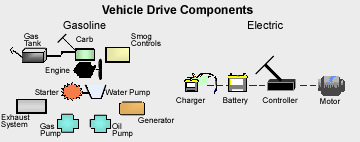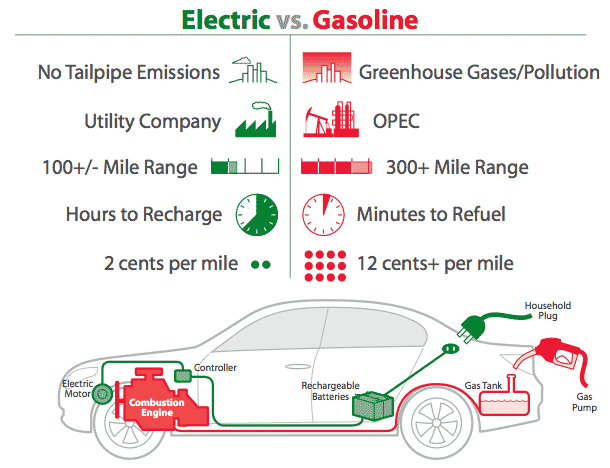|
September 2014
 In the recent few years, the price of electric vehicles in India has dropped considerably.
Besides, in most countries, powering an electric vehicle is inexpensive when compared
to a gasoline car. Even then there is a considerable cost gap that is yet to be reduced. In the recent few years, the price of electric vehicles in India has dropped considerably.
Besides, in most countries, powering an electric vehicle is inexpensive when compared
to a gasoline car. Even then there is a considerable cost gap that is yet to be reduced.
The main reason behind this cost gap is that EV cars are still facing a huge competition
from petrol powered cars. After all these gasoline powered vehicles are kings of the
road.
Even then, EVs are slowly swiping the market share from conventional oil-dependent
cars; these vehicles are slowly but surely charging into the automotive market.

Now let us compare gasoline and electric fuel vehicles on the basis of their fuel costs.
When you look at the costs of fuel that traverses a car or even an off-road 4X4 for
10,000 miles, (the distance is much less than what Americans drive each year, or way
more than that of Europeans), one can note that both electricity and gasoline prices are
applicable when estimating the fuel savings.
A major difference between electric vehicles and gasoline-powered vehicles are their
moving parts. While electric vehicles have just one moving part, which is the motor,
gasoline-powered vehicles have hundreds of moving parts.
So one can say that due to less moving parts, an electric vehicle requires less periodic
maintenance; ultimately it is more reliable unlike a gasoline powered one.
Thus, an EV driver spends lesser money on maintenance and fuel as well. Additionally,
the state-of-the-art lead acid batteries in all modern Electric Vehicles in Mumbai and
Bangalore are sealed and 100% maintenance free. Thus, these vehicles are more
effectual than their gasoline engine powered counterparts and thereby way cheaper to
operate.
|

